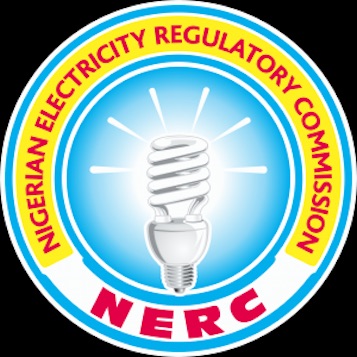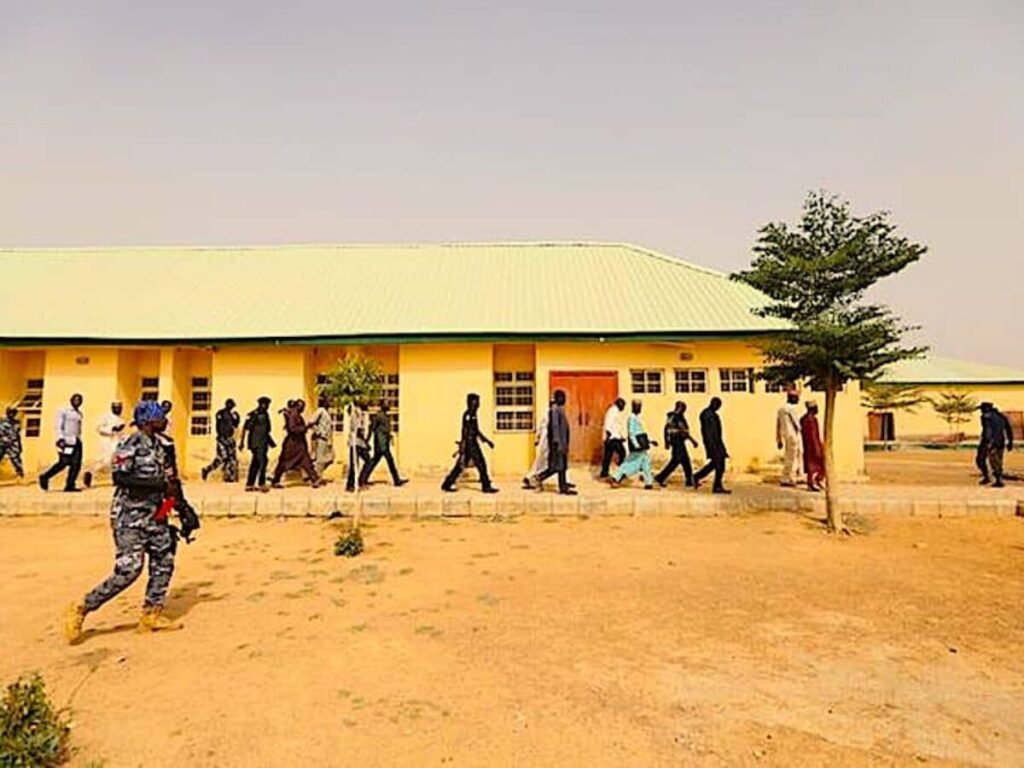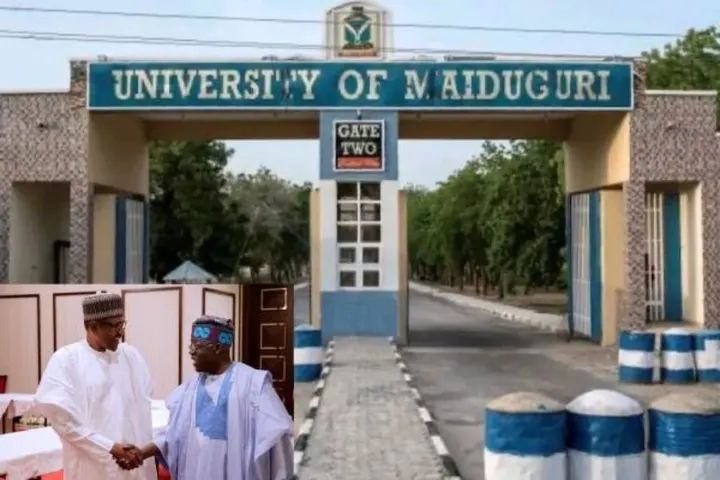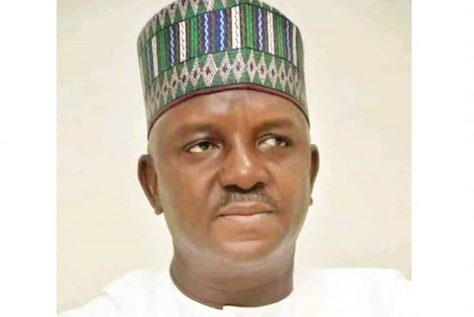COVER
Electricity: 40% Tariff Increase Takes Off July 1

Distribution Companies (Discos) operating in the Nigerian Electricity Supply Industry (NESI) at the weekend alerted their customers to a planned electricity tariff increase from July 1, this year.
Essentially, the Nigerian Electricity Regulatory Commission (NERC) years ago, developed a mechanism, called the Multi-Year Tariff Order (MYTO), under which the expected increase falls.
The regulator insists that this to ensure that the prices charged by licensees are fair to customers and sufficient to allow the licensees to finance their activities and to allow for reasonable earnings for efficient operation.
MYTO, the methodology for regulating electricity prices provides a 15-year tariff path for the Nigerian electricity industry with limited ‘minor’ reviews each year in the light of changes in a number of parameters such as inflation and gas prices and ‘major’ reviews every five years, when all of the inputs are reviewed with stakeholders.
The Discos in statements sent to respective consumers on Sunday, drawing the basis of the increase in MYTO, stated that the review was due to the fluctuation of the local currency, the naira in comparison to the dollar in the exchange rate market.
The Central Bank of Nigeria (CBN) in a bid to ensure parity in the Investors and Exporters (I&E) foreign exchange window, recently took the decision to collapse the official and parallel market prices which has seen the value of the naira drop to as much as N750 to the dollar.
Some of the distribution companies which alerted their customers to the new price range, included the Abuja Electricity Distribution Company (AEDC), Ikeja Electricity Distribution Company (IKEDC) and the Eko Electricity Distribution Company.
Abuja Disco for instance, told its customers that while some bands will have their tariffs increase to N100, others will have theirs raised higher with the new development.
“Effective July 1st 2023, please be informed that there will be an upward review to the electricity tariff influenced by the fluctuating exchange rate.
“Under the MYTO 2022 guidelines, the previously set exchange rate of N441/$1 may now be revised to approximately N750/$1 which will have an impact on the tariffs associated with your electricity consumption.
“For customers within band B and C, with supply hours ranging from 12 to 16 per day, the new base tariff is expected to be N100 per kWh while Bands A with (20 hours and above) and B (16 to 20 hours) will experience comparatively higher tariffs.
“For customers with a prepaid meter, we encourage you to consider purchasing bulk energy units before the end of this month as this will allow you to take advantage of the current rates and potentially make savings before the new tariffs come into effect.
“For those on post-paid (estimated) billing, a significant increment is imminent in your monthly billing, starting from August,” a message from the AEDC stated.
It further advised its customers to reach its customer support team if they needed further questions answered.
Also, the Ikeja Disco in a message sent to its customers, blamed the proposed increase in the rise in some key indices in the industry.
“Dear customers, electricity tariffs are set to go higher on July 1st due to the floating exchange rate. MYTO 2022 set the exchange rate at N441/$1, which may now be adjusted to about N750/$1. We may be looking at a base tariff of N100 per kWh for Band C (12 –16 supply hours per day).
“Bands A (20 hours and above) & B (16 – 20 hours) will be much higher. If you have a prepaid meter, buying bulk energy units for your home or office before the end of the month may help you make some savings before you have to buy at the new rate.
“For those on post-paid (estimated) billing, a significant increment is imminent in your monthly billing, starting from August. Please take note. Electricity units are set to jump by 30-40 per cent in just over a week. You are best advised to buy as many units as you can before July 1,” it stated in the message.
On its part, Eko Disco, which also couched its message in the same manner as the others, described the planned margin of increment as ‘significant’.
“Dear Customers, electricity tariffs are set to go higher on July 1st due to the floating exchange rate. MYTO 2022 set the exchange rate at N441/$1, which may now be adjusted to about N750/$1.
“We may be looking at a base tariff of N100 per kWh for Band C (12 – 16 supply hours per day). Bands A (20 hours and above) & B (16 – 20 hours) will be much higher.
“If you have a prepaid meter, buying bulk energy units for your home or office before the end of the month may help you make some savings before you have to buy at the new rate.
“For those on post-paid (estimated) billing, a significant increment is imminent in your monthly billing, starting from August,” it stated.
The Nigeria Labour Congress (NLC) had recently warned against the planned increase, with the NLC President, Joe Ajaero, stating that the massive rise will not bode well for Nigerians.
“We believe that not even these figures are a justification for this reckless proposed tariff increase. The issue of capacity to pay and quality of service delivery is not only germane but superior to any rationalisation by market logic,” Ajaero stated in a statement.
AEDC Urges Customers to Disregard Planned Tariff Increase
The Abuja Electricity Distribution Company (AEDC) has appealed to its customers to disregard planned tariff increase as approval for such increment had not been received.
AEDC management made the appeal in a statement yesterday in Abuja.
“Please disregard the circulating communication, regarding review of electricity tariffs.
“Be informed that no approval for such increments has been received. We regret any inconvenience.”
However, AEDC had earlier in a statement, said there would be an upward review of electricity tariff from July 1.
According to the statement, the tariff increase is influenced by the fluctuating exchange rate.
“Effective July 1, 2023, please be informed that there will be an upward review to the electricity tariff influenced by the fluctuating exchange rate.
“Under the MYTO 2022 guidelines, the previously set exchange rate of N441/1 dollar may now be revised to approximately N750/1 dollar which will have an impact on the tariffs associated with your electricity consumption.
“For customers within band B and C, with supply hours ranging from 12 to 16 per day, the new base tariff is expected to be N100 per Kilowatts per hour (KWh).
“While Bands A with (20 hours and above) and B (16 to 20 hours) will experience comparatively higher tariffs, ‘’it said.
AEDC encouraged customers with prepaid meters to consider purchasing bulk energy units before the end of June as this would allow them take advantage of the current rates and make savings before the new tariffs came into effect.
AEDC said that for those on post-paid (estimated) billing, a significant increment is imminent in their monthly billing, starting from August.
The Mult Year Tariff Order (MYTO) is the methodology for regulating electricity prices.
It provided a 15-year tariff path for the Nigerian electricity industry with limited ‘minor’ reviews each year in the light of changes in a number of parameters.
These included inflation and gas prices and ‘major’ reviews every five years when all of the inputs were reviewed with stakeholders. (NAN)
Manufacturers Decry Hike, Demand Subsidy
The Manufacturers Association of Nigeria (MAN) has come out to express its displeasure and kick against the nationwide increase in electricity tariff by 40%, saying that the sector was uncompetitive due to high prices used to generate electricity amongst other things.
MAN also pointed out that in the last 8 years of the previous administration, electricity tariffs had gone up by 186%.
President of the Manufacturers Association of Nigeria (MAN), Otunba Francis Meshioye, who stated this in an interview with ARISE NEWS yesterday, said that energy payments had consumed 30% of revenues brought out of the industry and is going to cause a high cost of performing business within the nation causing a lack of competition.
“There is no special subsidy we have asked for in the past that we have not addressed. What we had in the past was to have a price fixed over the period of time. We have not really complained so much about this price. The major thing to access ks that within the period where this price was increased and it was a time where we have not agreed that the price should be increased. This cost should ot be passed on to the manufacturers.
“It was increased two times before the time. This made them (MAN) have crude debts to the DisCos. This is what we’re telling government; that this should not be added to our costs because is not what we agreed on.”
Meshioye described the increase as outrageous saying, “This has been an issue over the time. What we have been experiencing is intimidation over our businesses. They will go to our businesses, disconnect the electricity and then nothing will happen.”
As a solution to the imbalance, the MAN president asked that ‘special rates’ should be allotted to manufacturing companies as well as privatization of electrical distribution companies to allow them cope with the increase ensuring that this would bring in investors and encourage competition.
“Encouraging private sectors to invest is very key. That will add competitiveness in the supply value chain of the electricity.
“One, be sure that you meter everyone and ensure they are connected to the grid. Run an efficient system and encourage competitiveness. Look for alternate source of emitting power.
“Apart efficiency in the supply chain, what manufacturing could do using gas and everything. Let me tell you, we don’t have a special tariff on gas so we enjoy seriously. But you remember that manufactures have even complained to NERC on a couple of things. We have road map on how the tariff should be increased. But you find that NERC will just increase it without consultation and without the due time before this tariff should be increased. So you find haphazard way of increasing the tariff.
“This is unfair. We need to be sure that if we agreed on a road map, you follow that road map”
Asides the electricity tariff increase, the MAN president stated that other factors affecting the expansion of the sector include multiple taxation from various arms of government at both state and local level who taxing for the same goal; logistics from ports which can cause delays, ineffective transportation systems and “astronomically high” interest rates.
COVER
UBA Raises N157bn Via Rights Issue to Boost Capital Base

United Bank for Africa Plc (UBA) has announced plans to raise N157 billion through a rights issue.The disclosure was made via a notice to the Nigerian Exchange Ltd (NGX).It said in a statement on Thursday that its stock brokers, United Capital Securities Ltd., had submitted an application to the Nigerian Exchange Ltd.
to that effect. It added its stock brokers had requested for approval and listing of a Rights Issue of 3,156,869,665 ordinary shares of 50 Kobo each at N50. 00 per share“Trading License Holders are hereby notified that United Bank for Africa Plc, through its Stockbrokers, United Capital Securities Ltd., has submitted an application to the Nigerian Exchange Ltd.” in that regard.“The rights issue will be on the basis of one new ordinary share for every 13 ordinary shares held as of the close of business on Wednesday, July 16, 2025.“The qualification date for the Rights Issue is July 16, 2025,” the bank noted.The move is part of UBA’s strategy to strengthen its capital base and support its expansion and growth objectives across Africa.(NAN)COVER
Benue Uncovers Over 4000 Substandard Schools

From Attah Ede, Makurdi
Over 4000 substandard and illegal schools have been uncovered and ready to be shut down across the state.The chief press secretary to the Benue State Governor, Tersoo Kula disclosed this at a press conference in Makurdi.Kula was reacting to a statement credited to former commissioner for education and knowledge management, Prof.
Dennis Ityavyar, said that Governor Alia has stabilised the educational sector since coming on board two years ago. ”No more strikes. Schools are moving on smoothly and in a bid to bring teaching and learning closer to the people and address the problem of younger school leavers in securing admission into tertiary institutions, the governor has established a new university.”The establishment of University of Agriculture Science and Technology Ihugh, Vandeikyaa LGA is real..The governor has secured the licence, acquired land and made appointments of principal officers.”This is to address the issue of providing admission for the teeming Benue indigenes seeking admission into Nigerian universities.”The Governor has employed over 9700 teachers to energize public primary schools in the state. Apart from the fact that our primary schools would be energized, 9700 youths have been taken off the streets.”The government of governor Alia has also paid the 38 months earned allowance owed to lecturers at the Moses Adasu University, formerly Benue State University Makurdi”, he said.He maintained that renovation of government secondary schools and colleges across the state are ongoing where ongoing construction of new structures is in some public primary and secondary schools to ensure conducive learning environment.”Public primary schools teachers are trained on ITCs to enhance the teaching and learning of information and technology innovations at elementary level.”This government has been able to identify over 4000 substandard schools in the state and have secured insurance cover for Benue State students and paid bursary allowances in law school students in the state”, Kula stated.Benue Moves to Domesticate National Policy on IDPsThe Benue State Government has commenced a validation process to domesticate the newly federal government policy on Internally Displaced Persons (PDP) in the State.Commissioner for Humanitarian and Disaster Management in the State, Aondowase Kunde, stated that upon stakeholders’ inputs into the Internally Displaced Persons policy document, it would be fully launched.He added that the aim is to improve the welfare of the displaced population in the state.Kunde stated this during a two policy validation meeting held at Benue Hotels Makurdi yesterday.He maintained that the document which was passed into law by the national assembly needed to be domesticated in the state in line with the peculiarities of the state.In his remarks, the chairman, House Committee on Humanitarian and Disaster Management, Benue State House of assembly, James Abu Umoro, noted that the state has suffered so many natural and man-made disasters that it requires the policy to be domesticated in the state.Umoru insisted that the house will not hesitate to pass the document into law when presented by the executive arm of government.He said the issue of IDP in the state is a concern for everyone and must be given accelerated consideration at any point in time.On his part, House committee chairman on SDG and Donor Agencies, Peter Uche, noted that in most cases, communities have suffered attacks for more than ten years.”Let me therefore, call on all to support the implementation of the policy document for the displaced to return to their ancestral homes to start their normal farming and business activities”, he stated.The Director General, Sustainable Development Goals, John Akuse, who spoke at the occasion, said the validation of the IDP policy document is vital in paving the way for the displaced population to be adequately taken care of regarding their peculiar needs.COVER
Tinubu Honours Buhari, Renames University of Maiduguri after Late President

By David Torough, Abuja
President Bola Tinubu has approved the renaming of the University of Maiduguri, Borno State as Muhammadu Buhari University.
“May we now adopt the University of Maduguri as the Muhammadu Buhari University,” Tinubu said at the close of a special session of the Federal Executive Council held to honour Buhari at the Aso Rock Villa, Abuja on Thursday.
The President paid a glowing tribute to Buhari, describing him as “a good man, a decent man, an honourable man” whose legacy of discipline, patriotism and moral uprightness would endure for generations.
Tinubu said although the late president was not without flaws, his unwavering commitment to national service set him apart.
“President Buhari was not a perfect man, no leader is, but he was, in every sense of the word, a good man, a decent man, an honourable man.
“His record will be debated, as all legacies are, but the character he brought to public life, the moral force he carried, the incorruptible standard he represented, will not be forgotten.
“His was a life lived in full service to Nigeria, and in fidelity to God,” he said.
Reflecting on Buhari’s time in office and his long military and civil service, Tinubu praised the late leader’s simplicity, humility, and stoic resistance to the trappings of power.
He said, “He stood, always, ramrod straight; unmoved by the temptation of power, unseduced by applause and unafraid of the loneliness that often visits those who do what is right, rather than what is popular.
“His was a quiet courage, a righteousness that never announced itself. His patriotism lived more in action than in words.”
Tinubu also recounted their political alliance, which culminated in the historic 2015 elections that marked Nigeria’s first democratic transfer of power from one ruling party to another.
“We stood together, he and I. Alongside others drawn from across the political spectrum, regions and tongues, we formed an alliance that enabled Nigeria to experience its first true democratic transfer of power from one ruling party to another.
“When he was sworn in as our party’s first elected President, he led with restraint, governed with dignity, and bore the burdens of leadership without complaint,” he said.
The President expressed admiration for Buhari’s post-office modesty, noting that he returned to his hometown, Daura, without seeking to wield influence behind the scenes.
“When his tenure ended, he returned to Daura; not to command from the shadows or to hold court, but to live as he always had, never seeking to impose his will but content to let others carry the nation forward.
“Even in death, he maintained the serenity that defined him in life: not a sigh, not a groan, just a quiet submission to the will of God. Such was the man Nigeria has lost. Such was the man for whom our nation now mourns,” he added.
Tinubu thanked the Inter-Ministerial Committee and Katsina State Governor, Dikko Radda, for organising a befitting state funeral within 48 hours, describing it as a “profound honour” to lead the burial procession in Daura.
He concluded his tribute with a prayer: “Mai Gaskiya, the People’s General, the Farmer President, your duty is done. May Almighty Allah forgive his shortcomings and grant him Aljannah Firdaus. May his life continue to inspire generations of Nigerians to serve with courage, conviction, and selflessness. President Buhari, thank you. Nigeria will remember you.”
Buhari died on Sunday, July 13, at the age of 82.






















